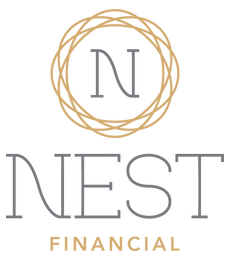Whether or not our economy is heading into a recession remains to be seen. By definition, we can’t know until we’ve been in one for six months and the National Bureau of Economic Research officially declares it.
But all signs are pointing to a recession on the immediate horizon. And the worst thing you can do for your financial wellbeing in the face of economic contraction is be caught unaware.
When there’s a hurricane gaining strength in the Gulf, people stockpile water and board up the windows. When there’s a tornado warning, people move to the basement.
But when there’s an economic storm coming, what do you do?
In this post, we’re going to talk strategy — what are some things that you can do now to ensure that your finances and your portfolio weather an economic downturn.
What is a Recession?
Just a quick refresher for those who missed our last post. For a more in depth look at the economic cycle and recessions, we highly recommend you check it out.
A recession is essentially a period of at least two quarters during which the economy significantly slows down. The GDP shrinks. Companies layoff employees they hired during expansion and the peak. Stocks drop. Inflation slows. Interest rates rise.
Because recessions speak to the state of the entire economy, there is no corner left untouched. That means that everyone will feel its effects.
But all hope isn’t lost! Let’s talk about some things that you can do to prepare.
Tips for Managing Money During a Recession
Check your emergency fund
You should always have 3-6 months in liquid savings on hand in order to buffer you from life’s curveballs. The unexpected is sure to happen, but if you’re unprepared, these instances can be tragic rather than inconvenient.
When the economy goes into a slowdown, it’s a really important time to check to ensure that you have at least the minimal amount of savings, and if you can, bulk it up. With rising interest rates and the increase in layoffs that come along with periods of recession, the more padding you have, the better.
Cash is king
During a recession there’s a ton of volatility within different asset classes, especially equities. Even bonds, which are often seen as safe harbors, can fluctuate a lot at these times.
Despite the increased inflation coming off an economic peak, cash can be a lot safer during turbulent times. Transitioning assets in your portfolio from more volatile classes to cash/currencies can mitigate more precipitous losses, make for an easier recovery when the economy recovers, and keep your capital available for ease of investments when opportunities arise. Before you make any moves, however, be sure to consult your financial advisor.
Speaking of which…
Talk to a financial advisor
As you’re planning for a potential economic recession, talking to an advisor who has experience managing investments during a recession is a very good idea. Recessions aren’t the time to leave your portfolios as they are, counting on the eventual upswing of the economy to eventually recover any losses. You want someone who knows what they’re doing to actively manage your investments.
When choosing a financial advisor, be sure to ask how they manage during economic slowdowns. Anyone can look like they know what they’re doing during expansions. Economic contractions are when financial advisors and investment managers really prove their mettle.
Understand your cash flow and tighten up your belt
If you aren’t already using a budget, you should be. Seriously. There are a ton of resources out there to help you with basic household budgeting, from spreadsheets to free online software.
But it’s not enough to make a budget – you have to stick to it. And when a recession could be impending, the same old budget won’t do.
When the economy is contracting, your budget should be contracting as well. Look at the non-essentials, the extras, the frivolous spending, and find ways to cut them out. This can look like canceling unnecessary subscriptions, cutting back on eating out, minimizing your entertainment allotment, opting for staycations or travel closer to home.
We know, it’s not glamorous, but hunkering down a bit during an economic slowdown can ensure that when the market recovers, you’ll be in a better position to take advantage of opportunities and live your best life.
Look at upcoming expenses and see what you can put off
We’re talking about big purchases like major home improvements, buying a new car, or taking that lavish Mediterranean cruise. Essentially things that will seriously dent your savings or increase your debt.
Remember, during recessions interest rates rise, which means you’ll pay more for that trip than you would when they’re lower. It’s also important to remember that during recessions, layoffs start happening. Whether you’re in a vulnerable sector or not, why increase your monthly outflow? Especially when you’re trying to tighten your budget… Better not tempt fate.
If it can wait, why not let it?
Keep an eye out for opportunities
As we’ve said before, there are ways to make the best of any economic environment. Instead of riding the waves up and down, there could be opportunities that could enable you to not just survive a down market, but even thrive.
Because of falling stocks, layoffs, and other issues that present during a recession, keep an eye out for opportunities to invest — real estate, startups, bottomed out stocks, etc.
Two BIG caveats here: First, taking advantage of any opportunities should not damage your emergency fund or cause you to go into debt. You should only jump on opportunities if you have the extra money.
Second, please, for the love of all that is good, talk to your advisor before you make any moves. If you’re going to take any chances during a recession, run it by a trusted professional who knows your financial situation first.
Is Your Money Recession-Proof?
Warren Buffet once said: “Be fearful when others are greedy and greedy when others are fearful.” During a recession, it’s important to first protect yourself and your assets. Once that’s taken care of, look for opportunities to improve your investments.
So, are your finances ready to weather a recession? Have you battened down the hatches? If you’re not sure, or if you’d like to see how you can better prepare for any economic weather, why not reach out to NEST and schedule a no-obligation call with us?
With nearly 30 years of experience helping people manage their personal finances and actively managing client portfolios through every stage in the economic cycle, we are more than equipped to help you thrive.
NEST is an Austin-based financial firm, and Gloria, Dan, and Sean are all passionate about helping Austin, Hill Country, and Central Texas individuals, families, small businesses, and entrepreneurs reach their financial goals.
Find us on:
LinkedIn Facebook Yelp Twitter
DISCLAIMER: We are legally obligated to remind you that the information and opinions shared in this article are for educational purposes only and are not financial planning or investment advice. For guidance about your unique goals, drop us a line at info@nestfinancial.net.






[…] But for typical businesses that are more affected by consumer demand, recessions can be tough. […]
[…] written in the past on how to manage your money during a contraction and how to prepare for a recession as a business owner. But today, we’re going to focus on your […]